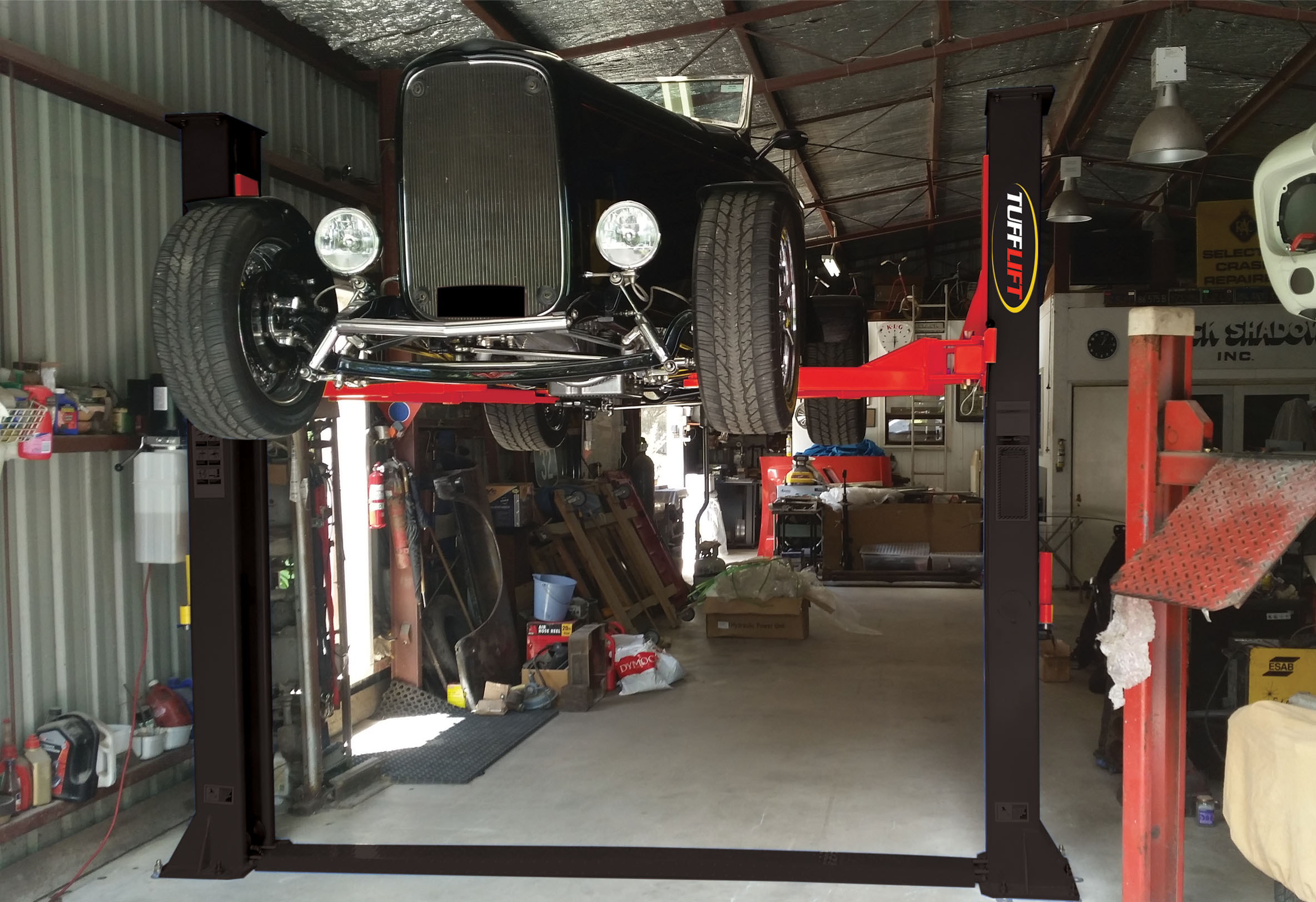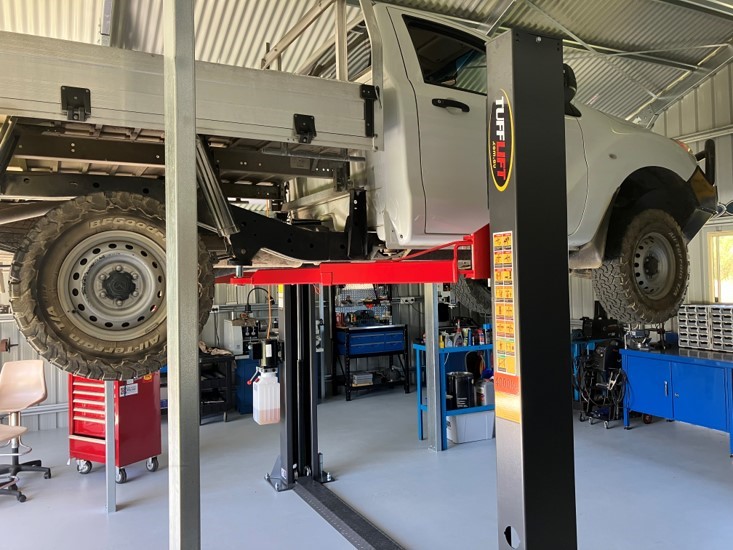Investing in a car hoist is a significant decision for automotive enthusiasts, professional mechanics, and business owners in the automotive industry. Whether you’re looking to streamline maintenance tasks, optimise your workspace, or expand your service offerings, a car hoist can be a game-changer.
However, before you dive headfirst into purchasing this essential piece of equipment, it’s crucial to ask the right questions. This proactive approach not only ensures that the hoist meets your specific needs but also safeguards against potential safety hazards and unexpected setbacks down the road. In this article, we’ll delve into the ten most vital questions you should ask before buying a car hoist, helping you make an informed and confident choice for your garage or automotive workshop.
10 Questions You Should Ask Your Hoist Supplier
- Weight Capacity: What is the maximum weight capacity of the hoist? Ensure it can lift your heaviest vehicle or equipment.
- Lift Height: What is the maximum height to which the hoist can lift a vehicle? Ensure it can accommodate the vehicles you plan to work on.
- Type of Hoist: Are you looking for a two-post, four-post, scissor, or specialty hoist? Is your facility able to cater for your preferred hoist type? Different types are suitable for different purposes.
- Power Source: Does the hoist require single-phase or three-phase electricity, or is it hydraulic or pneumatic powered? Ensure your facility has the necessary power source.
- Installation Requirements: What are the installation requirements? Is it a surface-mount or in-ground hoist? Understand the space and foundation needed.
- Safety Features: What safety features does the hoist have, such as safety locks, emergency stop buttons, or overload protection?
- Certifications: Is the hoist certified by a reputable organisation, such as ANSI or CE? Certification ensures it meets safety standards.
- Maintenance and Service: What is the recommended maintenance schedule, and is servicing readily available in your area? Regular maintenance is crucial for safety.
- Warranty: What is the warranty coverage and duration? A longer warranty can provide peace of mind. Can the supplier provide ongoing support?
- User Reviews: Have you read reviews from other users or talked to other professionals who have experience with the same hoist? Real-world experiences can be valuable in making your decision.
What Are The Types Of Car Hoists And What Are They For?
There are several types of hoists used for lifting cars, each with its own characteristics and suitability for different types of vehicles and purposes. Here are some common types of car hoists and the types of cars they are typically used for:
Two-Post Car Hoists:
Suitable for: Two-post car hoists are commonly used for lifting and servicing standard passenger cars and light trucks. They are versatile and can accommodate various vehicle sizes.
Four-Post Car Hoists:
Suitable for: Four-post car hoists are ideal for long-term vehicle storage, maintenance, and display. They can handle a wide range of vehicle sizes, from compact cars to larger SUVs and trucks.
In-Ground Car Hoists:
Suitable for: In-ground car hoists are typically found in professional automotive repair shops. They are designed for heavy-duty vehicle servicing and can handle a variety of vehicles, including larger trucks and commercial vehicles.
Portable Car Hoists:
Suitable for: Portable car hoists are versatile and can be used for various applications. They are commonly used for servicing cars, SUVs, and light trucks, making them suitable for mobile mechanics and off-site repairs.
Low-Rise Scissor Lifts:
Suitable for: Low-rise scissor lifts are ideal for smaller vehicles like compact cars and sports cars. They provide easy access to the underside of vehicles for tire changes and basic maintenance.
Mid-Rise Scissor Lifts:
Suitable for: Mid-rise scissor lifts are suitable for a broader range of vehicles, including sedans, SUVs, and light trucks. They offer a moderate lift height for maintenance tasks.
High-Rise Scissor Lifts:
Suitable for: High-rise scissor lifts are designed for larger vehicles such as vans, RVs, and commercial trucks. They provide greater lift height for more extensive maintenance and repair work.
Alignment Lifts:
Suitable for: Alignment lifts are specialised for performing wheel alignment and suspension work. They are used for passenger cars and light trucks and are often found in automotive repair shops.
Specialty Lifts (e.g., Motorcycle Lifts):
Suitable for: Specialty lifts cater to specific needs. For example, motorcycle lifts are designed for lifting and servicing motorcycles and small recreational vehicles.
Large 4 Post and Mobile Column Lifts:
Suitable for: Heavy and transport vehicles often found in heavy vehicle workshops.
When choosing a car hoist, consider factors such as the types of vehicles you will be working on, the available space in your garage or shop, and the specific maintenance and repair tasks you plan to perform. It’s essential to select a hoist that can safely accommodate the weight and size of the vehicles you work with and provides the necessary access for your intended tasks. Consulting with a professional or hoist manufacturer can help you make the right choice for your automotive needs.
Which Company Should You Buy A Car Hoist From?
Selecting the best company to purchase a car hoist from is a critical decision that can significantly impact your automotive business or personal garage. With various manufacturers and suppliers in the market, it’s essential to make an informed choice to ensure you receive a high-quality hoist that meets your specific needs and safety requirements. In this guide, we’ll outline a comprehensive set of factors to consider when evaluating potential hoist providers, helping you make a well-informed decision that ensures the safety and efficiency of your vehicle lifting operations.
1. Research and Reputation:
- Company Background: Begin by researching the background and history of the company. How long have they been in the industry? Do they have a track record of providing quality products and services?
- Customer Reviews: Look for customer reviews and testimonials online. These can provide valuable insights into the experiences of other buyers with the company’s products and services.
- Reputation: Assess the company’s reputation within the automotive industry. Are they known for reliability, quality, and customer satisfaction?
2. Product Quality and Selection:
- Hoist Types: Determine whether the company offers a range of hoist types suitable for your specific needs, such as two-post, four-post, or specialty hoists.
- Safety Features: Investigate the safety features incorporated into their hoists. Do they meet industry standards and regulations? Are there additional safety options available?
- Warranty: Inquire about the warranty offered for their hoists. A longer and comprehensive warranty can indicate confidence in the product’s durability and reliability.
- Certifications: Check if their hoists are certified by reputable organisations such as ANSI (American National Standards Institute) or CE (Conformité Européenne). Certification ensures adherence to safety standards.
3. Pricing and Value:
- Price Transparency: Ensure the company provides transparent pricing with no hidden fees or unexpected charges.
- Comparative Pricing: Compare the prices of their hoists with similar models from other reputable companies to ensure competitiveness.
- Value for Money: Consider the overall value you receive, including product quality, warranty, and customer support, in relation to the price.
4. Customer Support and Service:
- Availability: Assess the availability of customer support. Do they offer responsive support through various channels, including phone, email, and live chat?
- Technical Assistance: Determine if they provide technical assistance for installation, maintenance, and troubleshooting.
- Spare Parts: Inquire about the availability of spare parts and how quickly they can be obtained in case of repairs.
5. Installation and Maintenance Services:
- Installation Services: Check if the company offers professional installation services for their hoists or provides clear installation instructions.
- Maintenance Programs: Inquire about recommended maintenance schedules and whether they offer maintenance programs or services.
6. Shipping and Delivery:
- Shipping Options: Review the shipping options available and the associated costs. Consider lead times for delivery.
- Packaging and Handling: Ensure that the hoist will be packaged securely to prevent damage during transit.
7. References and Recommendations:
- Ask for References: Request references from the company to connect with past customers who can share their experiences with the product and service.
- Seek Recommendations: Seek recommendations from colleagues or industry professionals who may have insights into reputable hoist providers.
8. After-Sales Support:
- Post-Purchase Support: Inquire about the company’s support after the sale. Are they available to assist with any issues or questions that may arise?
9. Shipping and Return Policies:
- Return Policy: Familiarise yourself with the company’s return policy in case the hoist does not meet your expectations or requirements.
- Shipping Damage: Understand the procedure for addressing any shipping-related damages or defects.
10. Financing Options:
- Financing Plans: Check if the company offers financing plans or leasing options for their hoists, which can be beneficial for budget-conscious buyers.
By carefully considering these factors and conducting thorough research, you can confidently select a reputable company to purchase a car hoist from, ensuring a successful and safe investment for your automotive needs. Tufflift, a well-established international hoist manufacturing and distribution firm headquartered in Australia, brings a wealth of experience, with a cumulative 60 years in sales, installation, and service.
The hoists are manufactured in a network of facilities in China, adhering rigorously to Australian standards and possessing Work Safe Design Registration for the Australian market. Our emphasis lies in our commitment to quality, an extensive product lineup, and dedicated customer service to assist you in selecting the appropriate hoist for your specific needs. Get in touch today!





